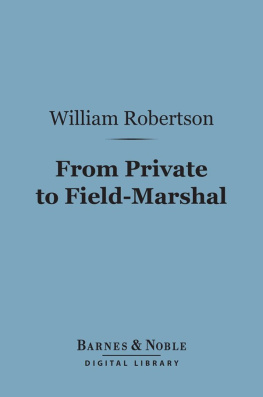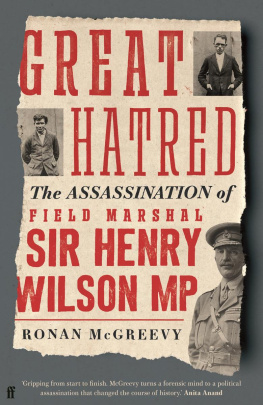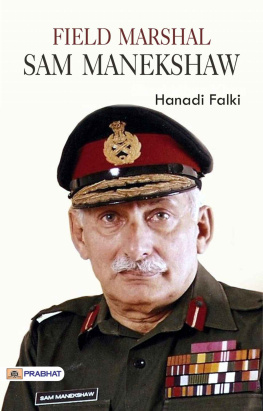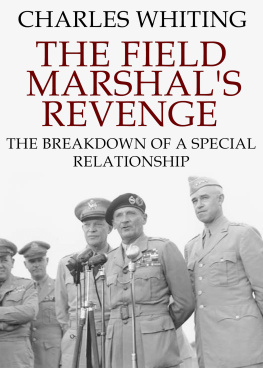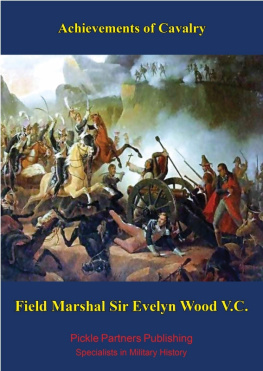This edition is published by PICKLE PARTNERS PUBLISHINGwww.picklepartnerspublishing.com
To join our mailing list for new titles or for issues with our books picklepublishing@gmail.com
Or on Facebook
Text originally published in 1927 under the same title.
Pickle Partners Publishing 2015, all rights reserved. No part of this publication may be reproduced, stored in a retrieval system or transmitted by any means, electrical, mechanical or otherwise without the written permission of the copyright holder.
Publishers Note
Although in most cases we have retained the Authors original spelling and grammar to authentically reproduce the work of the Author and the original intent of such material, some additional notes and clarifications have been added for the modern readers benefit.
We have also made every effort to include all maps and illustrations of the original edition the limitations of formatting do not allow of including larger maps, we will upload as many of these maps as possible.
FIELD-MARSHAL SIR HENRY WILSON BART., G.C.B., D.S.O. HIS LIFE AND DIARIES
MAJOR-GENERAL SIR C. E. CALLWELL K.C.B.
WITH A PREFACE BY MARSHAL FOCH
Volume II
WITH Eight Plates
CHAPTER XIX 1917. TWO MONTHS UNEMPLOYED
Wilson attends a meeting of the War CabinetVisits IrelandThe Flanders offensive startedWilsons plan of an Inter-Allied War CommitteeHe accepts the Eastern Command.
ENTRIES in Sir Henrys diary leave no doubt that when he returned to England he felt somewhat troubled as to the possible issue of the contest. Optimistic though he was by nature, he had been profoundly impressed by well authenticated reports of indiscipline amongst the French troops, and he had lost all faith in the Ribot-Painlev Government and in French politicians as a body. Then again, he regarded the lack of co-ordination between the responsible military authorities of the Allied Powers, and the absence of a common understanding between their respective Governments, with the gravest concern. There furthermore was the question of the extensive operations in Flanders which the B.E.F. was about to undertake, and in respect to the outcome of these operations he felt misgivings.
He had stayed two nights at Blondecques, Haigs headquarters, on his way to Boulogne, and had come to the conclusion that in their views and their anticipations the Field-Marshal and his C.G.S., Kiggell, were unduly sanguine. A special responsibility had moreover been imposed upon him in connexion with this contemplated offensive on a great scale to be undertaken by the B.E.F. For he had been informed at G.H.Q. that the War Cabinet were opposed to Sir Douglass plans, but had been urged to give them his support when he was called before the War Cabinet on arrival in London, and he wrote as follows in his diary after getting home to Eaton Place on June 28:
I had a long talk with Haig this morning. He told me that the War Committee had only given him authority to go on making his arrangements for an offensive, that Albert Thomas (just back from Russia) was going to report on the state of France in a fortnight, and that the War Committee would then decide whether to let Haig attack or not. The Committee were going to send for me, and very much, if not everything, would depend on what I said, and he wanted to know.
I told him the same as I told Kigg last night, viz: that I did not think the French would be able to make another serious attack this year under Ptains leadership, but that they would fight all right defensively, and would help all they could by simulating attacks, and that, as one of our main objects now was to keep the French in the field, I was absolutely convinced that we should attack all we could, right up to the time of the mud, and should then be prepared to take over.
I told Haig that if he was successful in his attacks, and he later on got the chance of disengaging Ostend and Zeebrugge, or of disengaging Lille, he was not to hesitate for a moment, but should disengage Lille. Haig told me that in his opinion, if he disengaged Ostend and Zeebrugge he would form such a salient there that the Boches could not remain in front of the French. However, he was satisfied with what I was going to say to the War Cabinet.
He was most nice to me, begged me to do something with my great brains, and said that there was always a bed and a welcome at his headquarters for me. He told me that there was much chat about me at home, as (he reminded me) I had predicted. So I told him that if no employment was found for me I would probably get into mischief, but that it would always be the sort of mischief that had the object of beating the Boches. He said that he knew it well, that he trusted me absolutely, and that I had been invaluable to him and so on. So we parted.
Suggestions had been made to Wilson from various quarters that he ought to go into the House of Commons, and he had further been given to understand that there would be no difficulty about finding him a seat; but, although he had been somewhat attracted by the idea, he would not seem to have regarded it very seriously at this time. Still, this, no doubt, was what was in his mind when he was closeted with Haig, and when he spoke of possibly getting into mischief if unemployed. He saw Carson after arriving in London, and was promised a seat in Ulster if he should care to stand; but Milner on the following day urged him not to do anything of the kind in a hurry, and gave him to understand that the Cabinet had some employment for him in their minds. He was summoned to attend a meeting of the War Cabinet on July 3, and of his experiences in Downing Street on this occasion he wrote in his diary:
I explained the situation in France and finished by saying that, although not desperate, it undoubtedly was serious. I was struck by the tone of the Committee, except Smuts who seemed rather to revel in the idea that the situation was desperate and impossible. Of course, this is nonsense. After 35 minutes the Committee broke up, no one saying anything to me about myself, and so I walked away.




